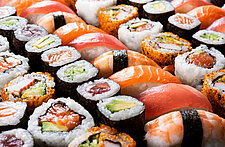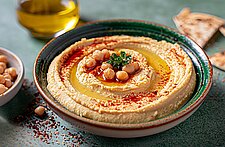Here at Symrise, we are always eager to better understand consumers which is why we recently launched an initiative around kids’ snacking habits. We conducted research that included ethnographic data, and is designed to help our customers design new snacking concepts for kids between the ages of 6 to 12.
From our in depth research, we learned that children and their parents have different expectations when it comes to snacking, and that families are motivated by a wide variety of desires when it comes to food selections.
For more consumer research, CLICK HERE to subscribe to our weekly newsletter
To learn more about kids snacking habits, check out the articles below:
Three Types of Families and Their Snacking Preferences

When we at Symrise recently performed a survey on snacking habits of kids aged 6 to 12, we found that parents fall into three basic types: solution seekers, nourishers and fillers. Each of these types focuses on different issues surrounding food, gravitates toward different attributes in the foods they choose, and exhibits strikingly unique behavior patterns during meals and snacks.
Read More at in-sight.symrise.com
![]()
Kids' Food Needs, Wants and Expectations All Influence Purchases
![]()
Kids' food choices vary widely - not only according to their tastes and moods, but also by time of day, snacking occasion, and a range of other interrelated factors. The things a child needs from a snack - small portions, moderate temperatures, and others - may not have much to do with the things they want, such as interesting shapes or flavor combinations.
Read More at in-sight.symrise.com
![]()
Snack Choices Vary by Time of Day and by Occasion
![]()
When children pick out their own snacks, they generally have two goals in mind: they want to eat something delicious, and they want to feel full at the end of it. While the tastes and portions that define "delicious" and "full" vary widely, these two desires tend to come through clearly.
Read More at in-sight.symrise.com
![]()
A Popular Snack Needs More Than Just Great Taste

Not all drivers of snack choice are related to the snack itself. A great website has a 74 percent correlation with affinity, while snacks with good-looking packaging scored a 70 percent correlation. While neither of these factors will outrank taste or shareability, they can both help nudge a snack over the line and into the shopping cart if it is somewhat lacking in other areas.
Read More at in-sight.symrise.com
![]()
Every Family Follows Different Paths to Meals and Snacks

Here is a quick list of the most common paths to meal and snack consumption, according to the latest research conducted at Symrise. Our survey team examined the snacking habits of kids aged 6 to 12, from a variety of ethnographic groups.
Read More at in-sight.symrise.com
![]()





